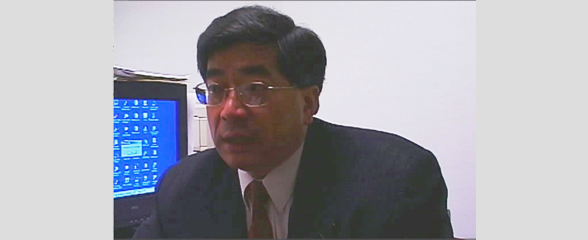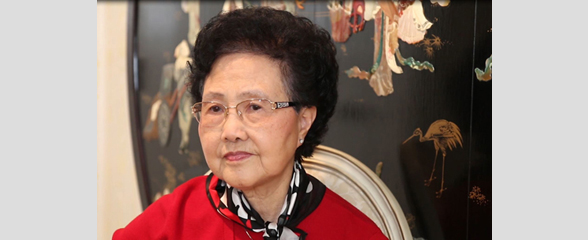Community

2014.036.007 Oral History Interview with Jeannie Lee Jackson July 13, 2004
Jeannie Lee Jackson is a Chinese American and native New Yorker. She recounts the origins of her seemingly unusual surname for her ethnicity. She recalls her childhood in Brooklyn, growing up as the only Chinese person in her school, working in the family laundry business, and the role Manhattan Chinatown played in her life. As a former member of the Ging Hawk Club, she remembers the social activities she engaged in and how it led to her serendipitous meeting of her husband. Jeannie chronicles raising her children whilst moving to various neighborhoods throughout the city and the change in demographics, affluence, and challenges to the economy. She details effects of crime due to gang activities during the 1970s. She describes starting the Chinese American Lioness Club and how the service organization improved the social welfare, public safety, and health care amongst senior citizens. She recalls the momentous events of September 11th and its impact on the city but specifically Manhattan Chinatown. She describes the confusion, fear, and how the neighborhood came together in its aftermath.

2014.036.008 Oral History Interview with Joseph Chu, April 26, 2004
Joseph Wah Chu is a Chinese immigrant from Toishan County, Guangdong Province, China born in 1933. He grew up in Guangzhou and Hong Kong before eventually moving to the United States in 1965. In the United States, he worked in different cities such as San Francisco, Chicago, and New York City as a waiter and office worker. Joseph would eventually settle in New York City’s Chinatown, citing better job opportunities and existing friendships in NYC. In 1978, Joseph started working at the New York Chinatown Citizen Center, where he assisted senior citizens with applications for government benefits such as food stamps, Medicaid, and senior housing. He recalls the changes over time in Chinatown, from lowering crime to increasing difficulty finding housing for seniors. During 9/11, Joseph was taking a group of seniors out on a field trip. He recalls the transportation shutdown that made his group go to New Jersey to double get back to New York. He describes the reaction and also the impact of the attacks on the senior population. Joseph also talks about government assistance provided following the 9/11 attacks, which ranged from rent/business assistance to free air purifiers and air conditioners. The interview then turns to a discussion about Chinatown’s economic recovery and the changing senior demographics in Chinatown and concludes with a mention of ongoing issues related to housing.

2014.036.011 Oral History Interview with Mirian Yau Oyola October 17, 2003
In this interview, Mirian Yau Oyola recounts her family’s migration from Guangdong, China to Panama and reminisces about her childhood growing up on a ranch and in a large Asian community in Panama. She chronicles her family’s eventual move to New York City, familial dynamics within a mixed family, the difficulties of cultural assimilation into American life with a Chinese stepmother, and the stark contrasts between life in Panama and America. Growing up in Brooklyn, she recalls how her neighbourhood was segregated by ethnicity down to the streets that they lived on, illegal child labor in Chinatown sweatshops, and a family scandal that created an irreconcilable rift. She recalls her involvement with the Chinatown YMCA, work as a youth counselor, and the waves of ethnic Chinese immigrants over the decades. Mirian reflects on the duality of her life being of mixed race (half Chinese and half Hispanic), the cultural expectations placed on her, her struggles with cultural identity, and the distinct emptiness she felt not being fully of either cultures. Mirian vividly recounts the day of September 11th, to which she was an eyewitness, and the confusion and mad scramble to reunite lost children to their parents that followed. She explains her patriotism and describes all the ways that she is proud. She recalls the fears that she felt for many of the children in Chinatown and surrounding neighborhoods in the aftermath of the events.

2014.036.017 Oral History Interview with William Chiu, March 30, 2004
William Chiu, born in 1952, begins this interview recalling his childhood growing up, learning and working in Hong Kong. He talks about his father’s work as a chef and his father’s fateful opportunity to immigrate with his family to the United States. He describes his education and reasoning for desiring to go to the United States. William recounts his first job working as a waiter in training before beginning to work with his father in the restaurant business. He also describes the working conditions and his experiences dealing with discrimination towards Chinese people during his time in Chinatown and the Bronx. William and his father would eventually open a Chinese takeout restaurant in Long Island near the Stony Brook area, with William working the front and his father working the back. He expanded his enterprises following his father’s passing and started businesses in real estate, travel, and food imports. He reflects on the impact of the 9/11 attacks on Chinatown and the economic downturn it has caused residents as well as the businesses he owned. William also describes the community advocacy work he has done for the Chinatown community, especially in police relations. He concludes the interview with his thoughts on Chinese unity and hopes that his children would carry on the family’s cultural values.

2016.037.021 Oral History Interview with Kimmie Lee Tie
Kimmie Lee Tie discusses her early life in China and how World War II impacted her family and interestingly her diet. She talks about the experiences she had cooking on her familys small farm and how after the war she married a Chinese American sailor and moved to the United States. Living in the US, Kimmie and her husband bought a Cantonese restaurant in 1957 which they operated for twenty years. In this environment, she taught herself how to cook with a wok and developed her Chinese American tastes. Make sure to listen in for her personal recipes, especially her favorite butterfly shrimp.